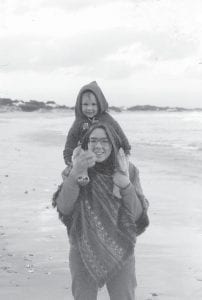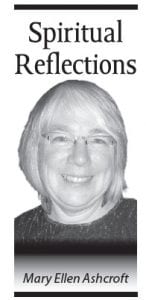When I lived in Cape Town, working in the Anglican Church from 1975-1982, we would look out in Cape Town Harbor and see Robben Island. We knew Nelson Mandela was in prison there. But we had to look around and make sure no one was listening before we said his name.
In South Africa during those years, Mandela was conspicuous by his absence. To wear a T-shirt with his picture would have landed you in jail. To hold a mug with his name on it or have a book with his writings in it would have taken you to prison.
One August I flew back to South Africa from visiting my parents, and in my luggage were some books I had been given to deliver to a friend. Looking at the book covers, you saw six copies of Flannery O’Connor’s Mystery and Manners. When you looked inside, though, they were books of Mandela’s writing. Just as well they were so well disguised, since customs officials pawed through luggage of anyone associated with the Anglican Church with great gusto. My friend Sid was part of an intentional community we belonged to, and I said as I handed over the books, “Sid, you didn’t tell me.” He said, “I knew you’d want to bring them. But I thought it would be better if you got caught if you could say you didn’t know. And you wouldn’t be nervous going through customs and immigration. Thanks. These are important.”

This week’s Spiritual Reflections columnist, Mary Ellen Ashcroft, had the interesting experience of living in the shadow of Robben Island, where Nelson Mandela was imprisoned. She is pictured here with her son, Andrew, at the beach in Hermanus, South Africa in March 1979.
The Nationalist government, after coming to power in 1948, had come out with a law forbidding mixed race church services, but our parish had them weekly. We organized house groups that met across racial lines. But we couldn’t sing the song we longed to sing: Nkosi Sikele Africa— God bless Africa—because it was banned. We Shall Overcome was also forbidden.
In the mornings, I would take my son Andrew to his nursery school on my bike along a road running parallel with the local train line. Most mornings, someone would have written in large spray paint letters—FREE NELSON MANDELA—on one of the concrete pillars. By the time I rode back half an hour later, the treasonous words had been spray painted over. Clearly there was a government crew—perhaps many crews—whose whole job was to spray paint over Mandela’s name.
I think of those customs officials, those spray painting crews, those draconian laws. And then I hear his name sung, spoken with pride and tears, honored by the world 35 years later. The contrast could hardly be greater.
I’m working on a book about my years in South Africa right now. And so these days of honoring Nelson Mandela have felt very profound and personal. But I believe there are lessons that are profound even for those without memories of his name spray painted on a wall.
One of the great lessons is that you can’t wipe out good. All the spray paint, the bannings, the prison cells, the torture and killings were ultimately a failure. As a South African song (this one memorializing Stephen Biko, a colleague of Mandela) puts it, “You can blow out a candle, but you can’t blow out a fire…once it begins to glow, the wind blows it higher.”
Many Afrikaner Nationalists (the party who developed apartheid) saw themselves as highly moral people— but they were acting, not out of hope but out of fear.
It also seems clear (lesson two) that fear is a terrible thing. The Nationalist government at the time— in putting Mandela in prison, in hiring folks to check desperately for contraband books coming into the country, in getting crews to spray paint over his name—were desperate. They assumed that if they took the lid off for even a moment, they would all be killed in their beds. Their fear meant they couldn’t imagine good and love in their beautiful land. Fear does that to people.
There are amazing gifts everywhere (lesson three). The fact that there were people of extraordinary stature alive at such a time and in such a place—like Nelson Mandela and Desmond Tutu—is a grace-filled gift.
Wise, able to see a bigger picture— these two were able to lead in a time of desperate need. Anglican Archbishop Desmond Tutu created the Truth and Reconciliation Commission—with its refusal to grant either mindless amnesty or blanket retribution for crimes done under apartheid. This model continues to be a gift to the world. Mandela’s leadership has been characterized by grace and openness across barriers. For example, he invited a former jailer during his 27-year stint on Robben Island to sit on the platform for his inauguration as the first black President of the New South Africa. He worked with the national rugby team who many saw as the face of the enemy (see the movie Invictus).
When people hear I lived in South Africa during those years, they often say, “We thought for sure there would be a blood bath.” I want to reply, “Try living there!” Living there with small children, and walls that began to seem paper-thin when there were riots outside. We moved to Minnesota after seven years…but many people who could have emigrated stayed, saying, “This is where we belong. We’re going to see things through to a new South Africa.”
I still have many friends in South Africa. Over my years as an English professor, I developed and taught a course on the literature of Southern Africa, which brought me many perspectives. (If anyone ever wants a book group to read and discuss some of these, let me know!) My daughter and I visited in 2000, and it was wonderful to see the new South Africa, and yet, of course it is still a place in which the deprivations and legacy of apartheid are still present. (See the movie TsoTsi.)
People are surprised to see the response to Nelson Mandela’s death in South Africa—sorrow, but also singing and dancing. It makes sense to me, since his life represents the triumph of good over fear, and a remarkable gift of grace at a remarkable time.
Nkosi Sikele Africa—God bless Africa!
Each month a member of the Cook County Ministerium will offer Spiritual Reflections. This month’s s contributor is Mary Ellen Ashcroft, Vicar of Spirit of the Wilderness Episcopal Church.



Loading Comments